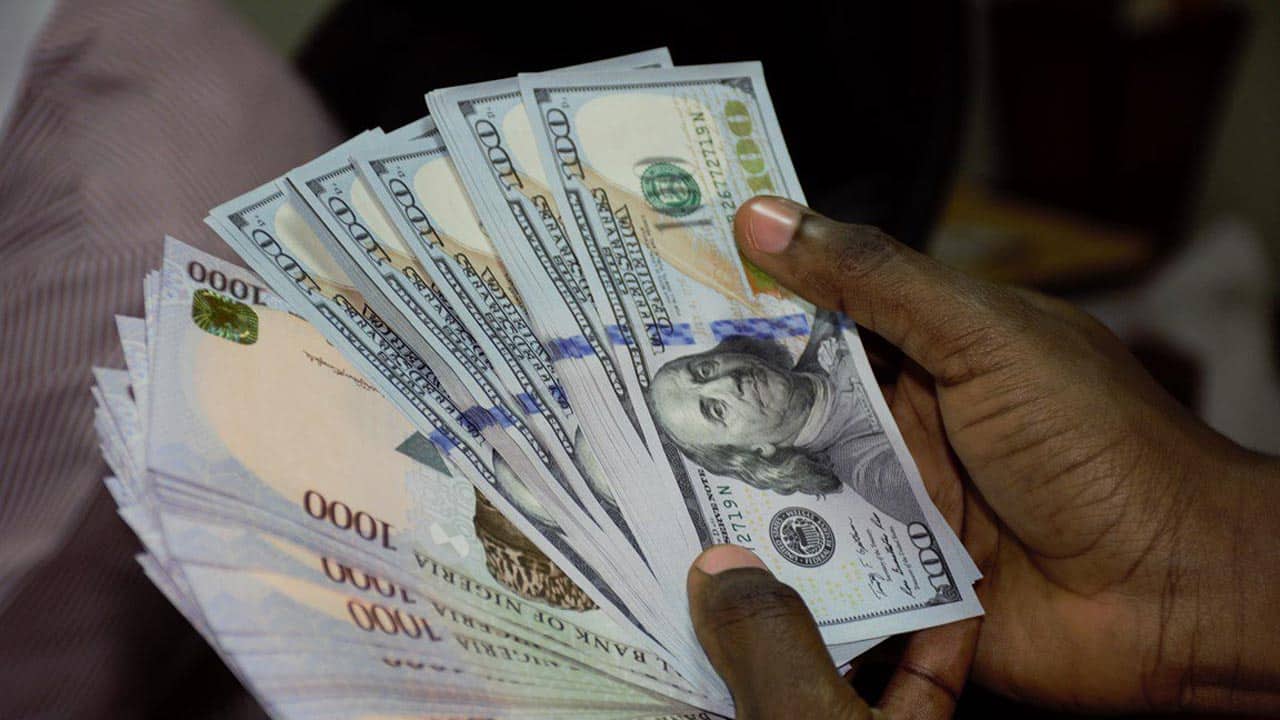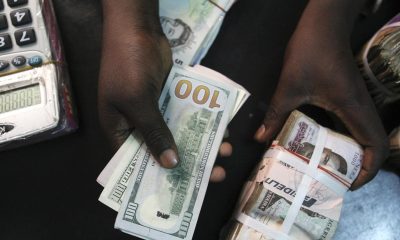Nigeria News
Naira Strengthens Against US Dollar In Latest Exchange Rate

Nigeria’s currency, the Naira, saw a slight increase in the parallel market, going up to ₦1,485 to N1,490 per dollar, compared to ₦1,490 on Wednesday.
However, it fell back to N1,485.36 per dollar in the Nigerian Foreign Exchange Market, NAFEM.
Information from FMDQ indicated that the estimated exchange rate for NAFEM climbed to ₦1,485.06 per dollar from ₦1,483.02 on Wednesday, suggesting a depreciation of the Naira by N2.04 per dollar.
As a result, the difference between the rates in the parallel market and NAFEM got smaller, dropping to 36 kobo per dollar from ₦6.98 per dollar on Wednesday.
Recently, the Presidency predicted that the Naira will exchange at ₦1000 against the United States (US) Dollar before the end of 2024.
As the presidency reflects on the past, it stresses the need to note the resilience of the local currency, which weathered some challenging months, sliding as low as ₦1,900 to the US dollar earlier.
The Special Adviser to President Bola Ahmed Tinubu on Information and Strategy, Bayo Onanuga, noted this last Sunday while reacting to a report credited to Ruth Maclean and Ismail Auwal.
Onanuga sternly criticized the report published in the New York Times, which rated the Nigerian economy as facing the worst trajectory in a generation.
The PresidencyPresidency has expressed dissatisfaction with the feature story ‘Nigeria Confronts Its Worst Economic Crisis in a Generation’, published on June 11.
The government believes that this article reflects the long-standing trend of foreign media outlets reporting on African countries in a predetermined, reductionist, derogatory, and denigrating manner.
Onanua has stated that due to the ‘misleading’ nature of the report, it is necessary for the government to address some misconceptions conveyed by the reporters regarding the economic policies of President Tinubu’s administration, which assumed power at the end of May 2023.
One significant point highlighted in the report is the portrayal of the dire experiences faced by some Nigerians amidst the inflationary spiral of the past year, with all blame placed on the new administration’s policies.
Furthermore, based on several interviews, the report is criticized for being biased, excessively negative, and failing to acknowledge the positive aspects of the economy and the ameliorative policies being implemented by both the central and state governments.
Onanuga, the presidential aide, further emphasized that the economic problems faced by Nigeria today were not created by Tinubu but instead inherited by him, a fact that should be understood by all.


